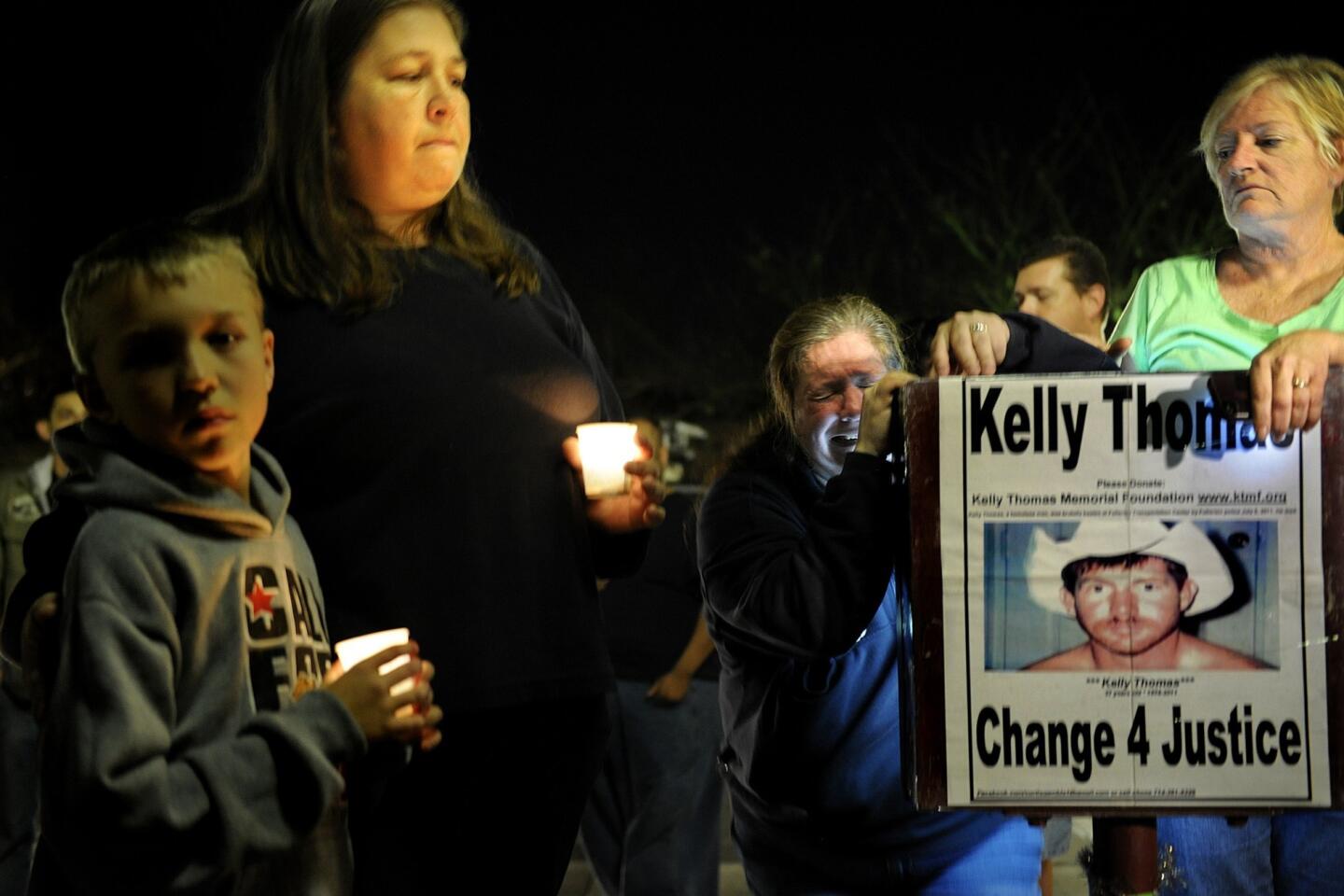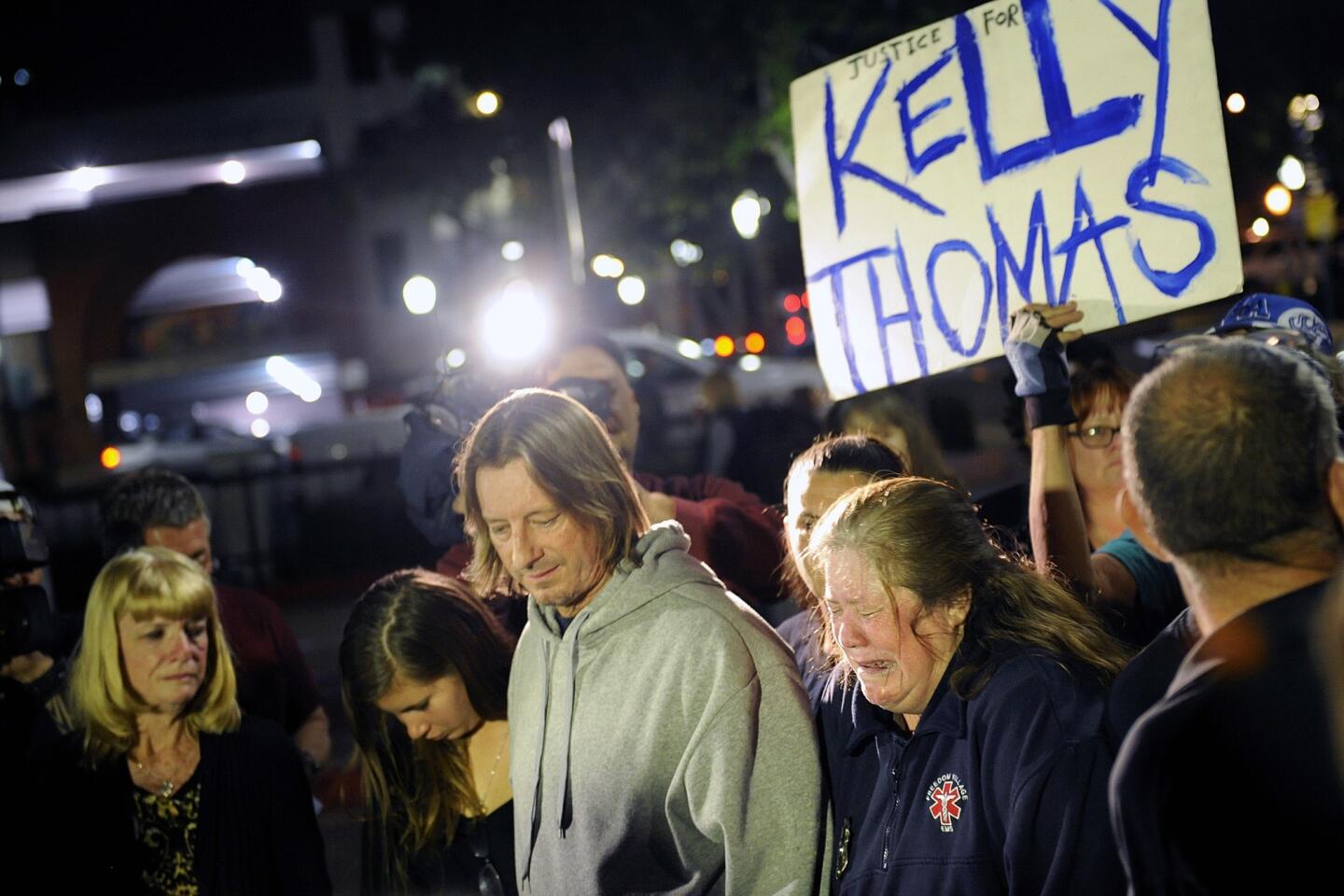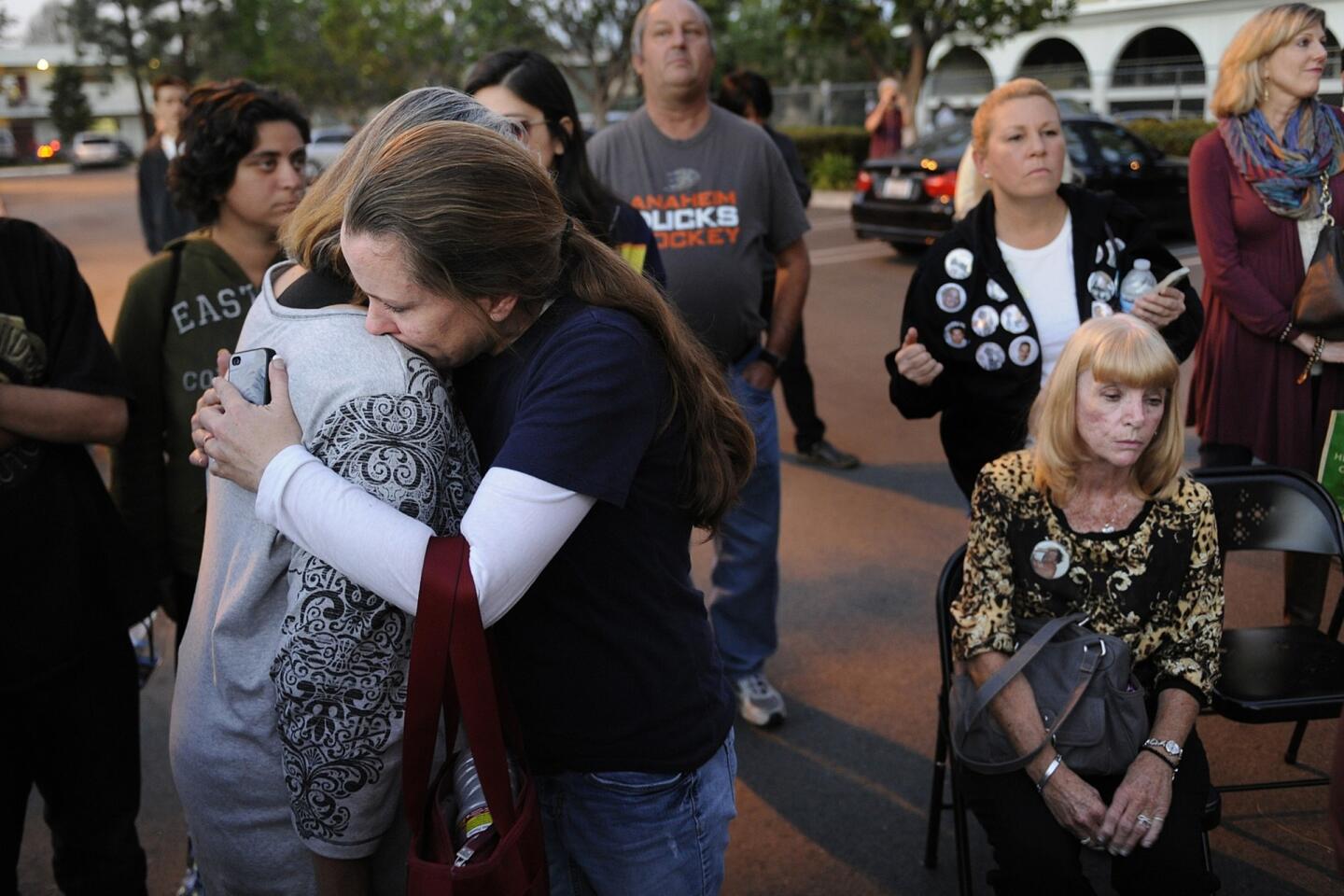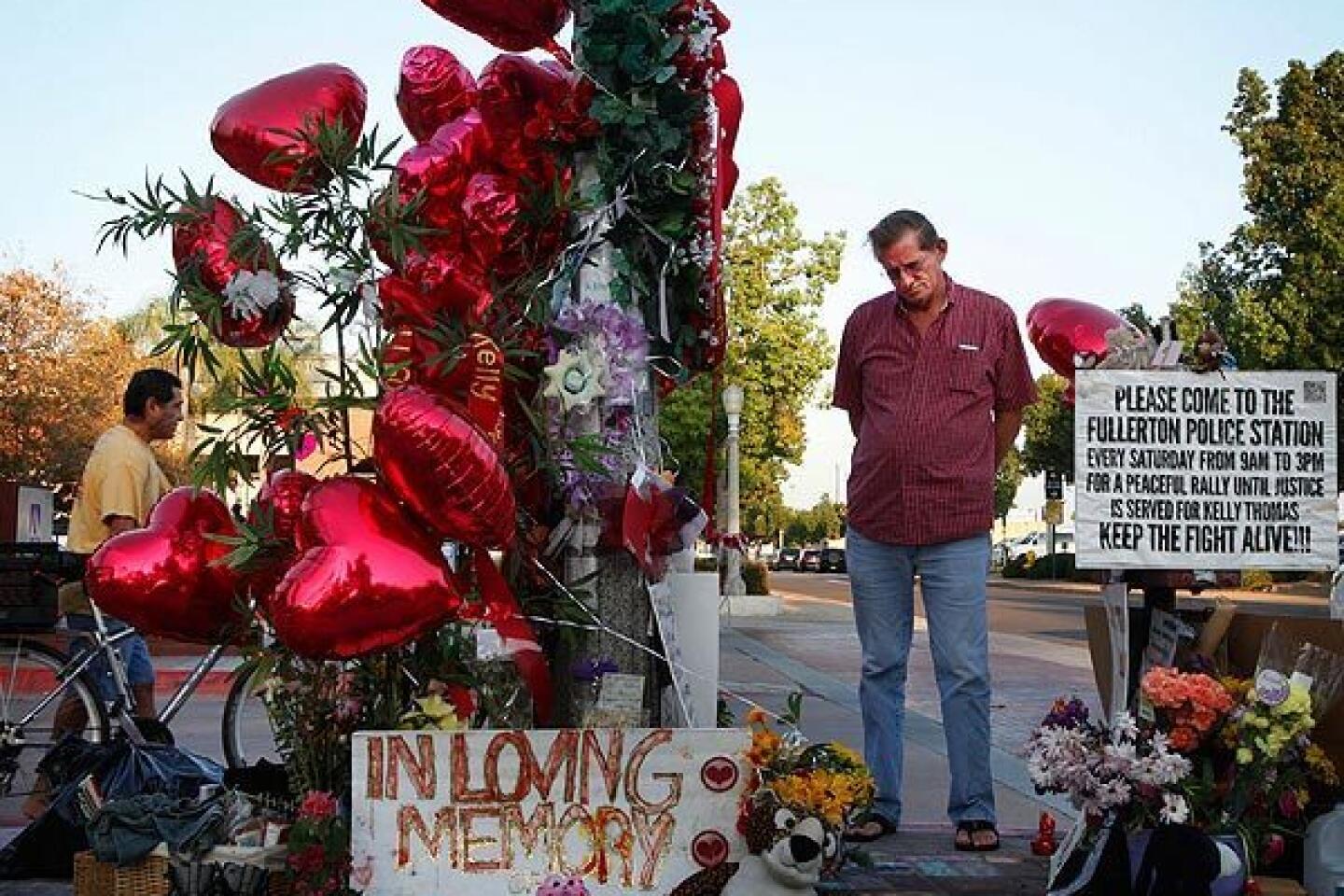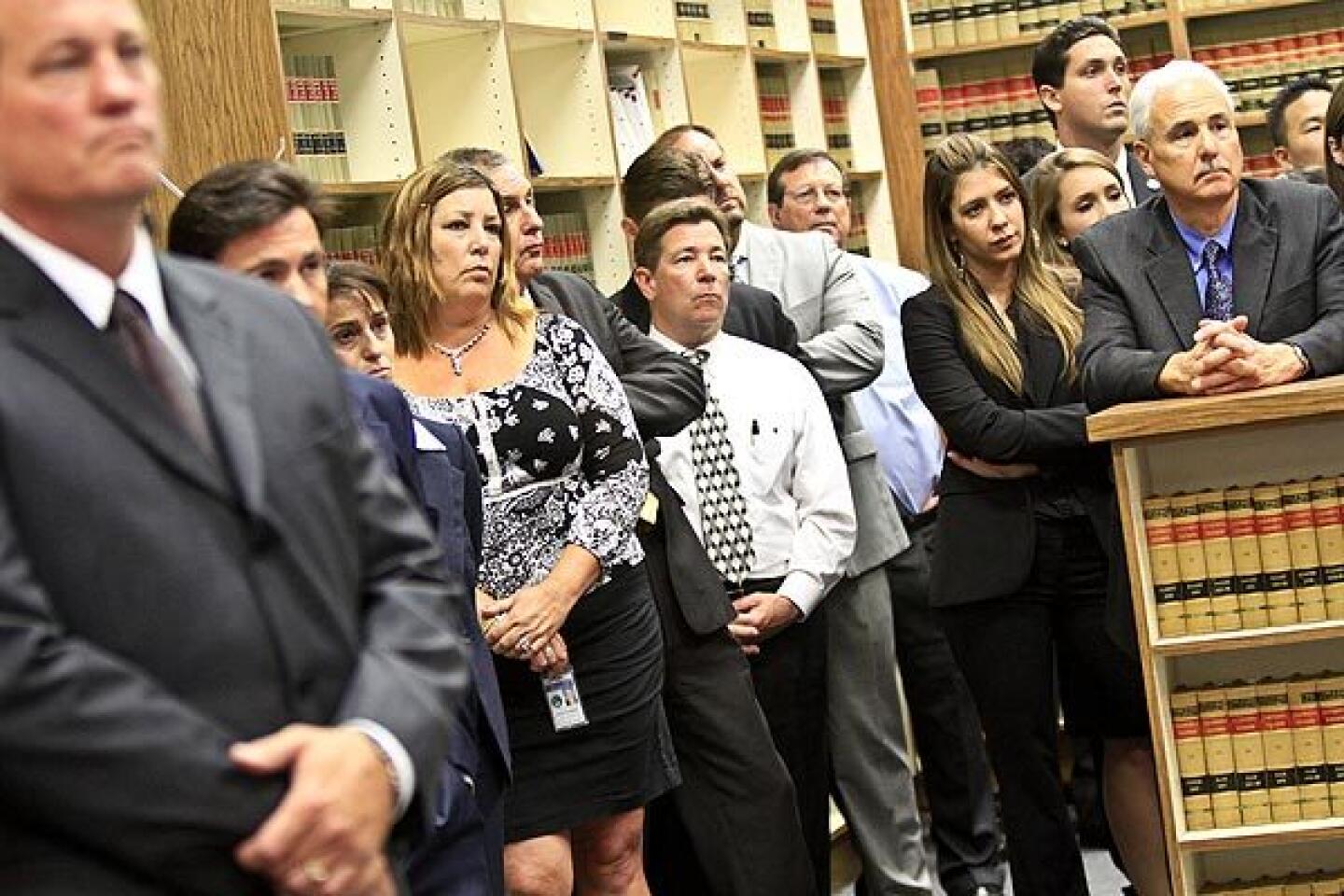Will O.C. be first large county in state to implement Laura’s Law?
- Share via
The Orange County Board of Supervisors is set to vote Tuesday on whether to implement Laura’s Law, allowing court-ordered treatment for the severely mentally ill.
If approved, Orange County would become the first large county in the state to adopt the program.
Laura’s Law has languished in California since 2002, when it was adopted by state legislators with the caveat that each county approve its own program. Only Nevada County has fully implemented it.
The law received renewed attention in Orange County after the death of Kelly Thomas, a homeless man who suffered from schizophrenia and died after a confrontation with Fullerton police.
The proposal before the supervisors calls for allocating about $4.4 million per year in Mental Health Services Act funds to provide assessment and treatment for an estimated 120 people, said Annette Mugrditchian, director of adult and older adult services at the Orange Health Care Agency.
The county will need to allocate additional funds to provide for legal and other costs associated with the program.
Families of adults suffering from mental illness began aggressively lobbying the county to implement the law soon after Thomas’ death in 2011. They say court-ordered treatment for severely mentally ill patients who sometimes don’t recognize their own illnesses could help reduce the number of mentally ill adults who end up homeless or in jail.
Critics say the law dangerously lowers the threshold for taking away a person’s basic rights.
Supervisor John Moorlach said implementation of the law was stymied for a time by lack of funding, a problem he said was solved with the recent passage of statewide legislation clarifying that money from the Mental Health Services Act, a voter-approved 1% income tax on personal income above $1 million, can be used for Laura’s Law.
“The goal would be if we could provide services to help these individuals, young or old, to avoid a life of crime or a life of homelessness,” he said. “At the end of the day we would save a lot more by not having to incarcerate them or put them in a temporary homeless shelter or some other related costs.”
To qualify, a person must suffer from mental illness, be unlikely to survive safely in the community without supervision and have a history of lack of compliance with treatment, among other qualifications. They must also have a recent history of violence, jailings or hospitalizations because of mental illness.
Ann Menasche, staff attorney at Disability Rights California, said the law unnecessarily tramples on the rights of those who suffer from mental illness.
“We’re doing an experiment in taking away people’s rights when it’s not necessary, when we have effective programs that work, they just need more funding,” she said.
Ron Thomas, father of Kelly Thomas, said he will be at the supervisors’ meeting Tuesday to lobby for court-ordered treatment.
“When someone is gravely disabled like Kelly was, you can’t consciously make a decision,” he said. “Kelly never knew he was sick.”
More to Read
Sign up for Essential California
The most important California stories and recommendations in your inbox every morning.
You may occasionally receive promotional content from the Los Angeles Times.
